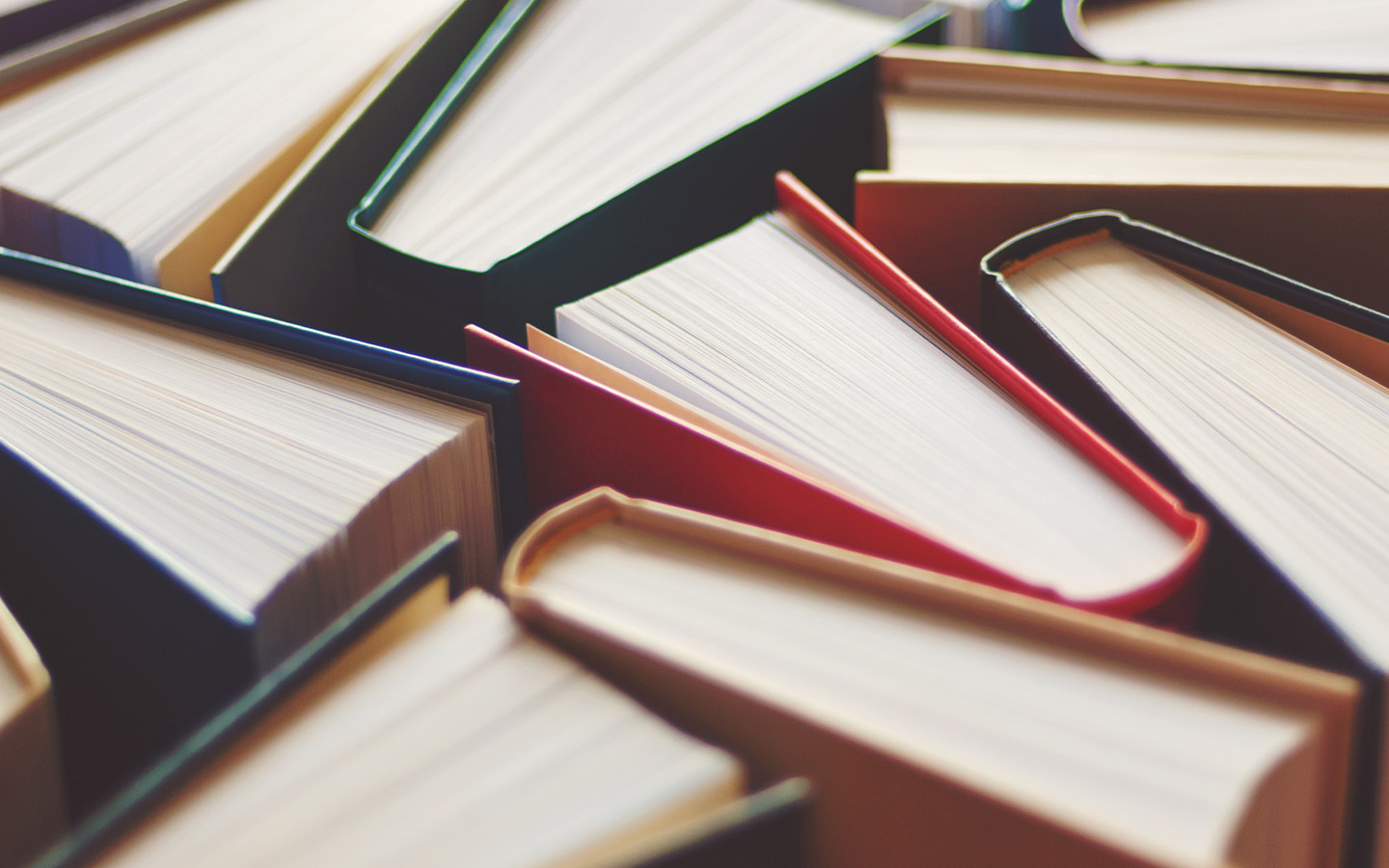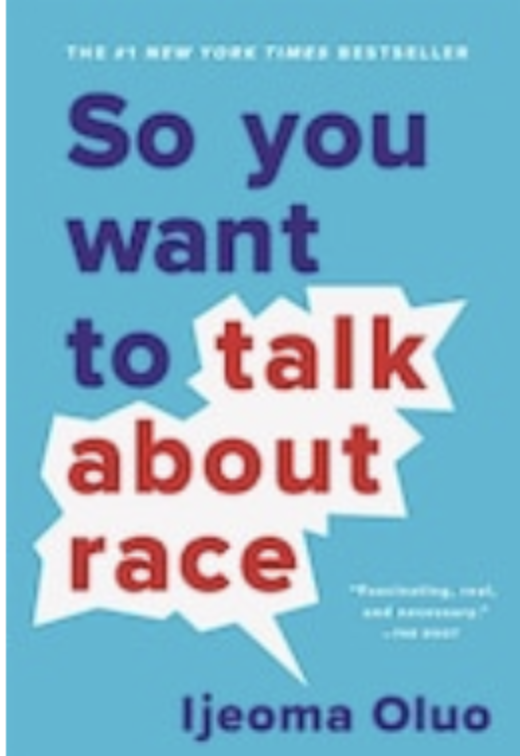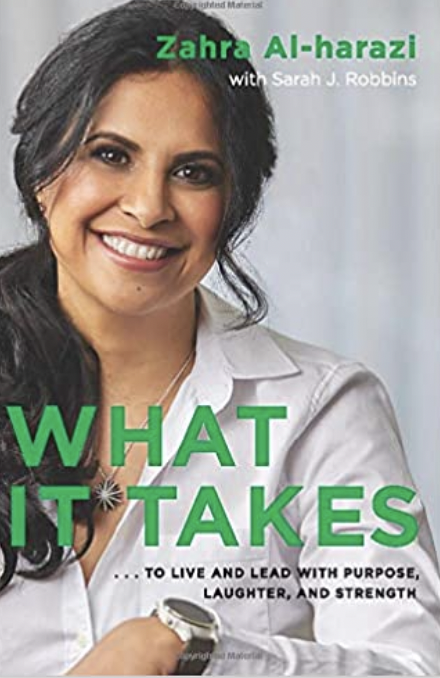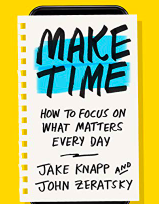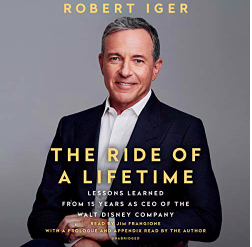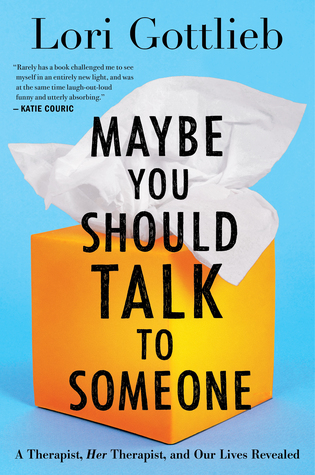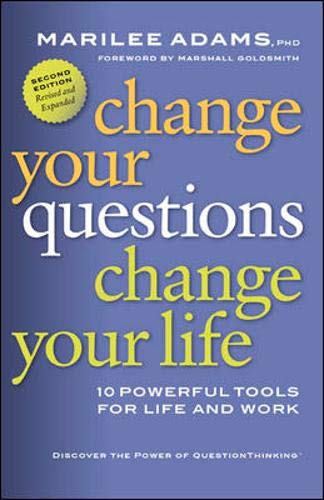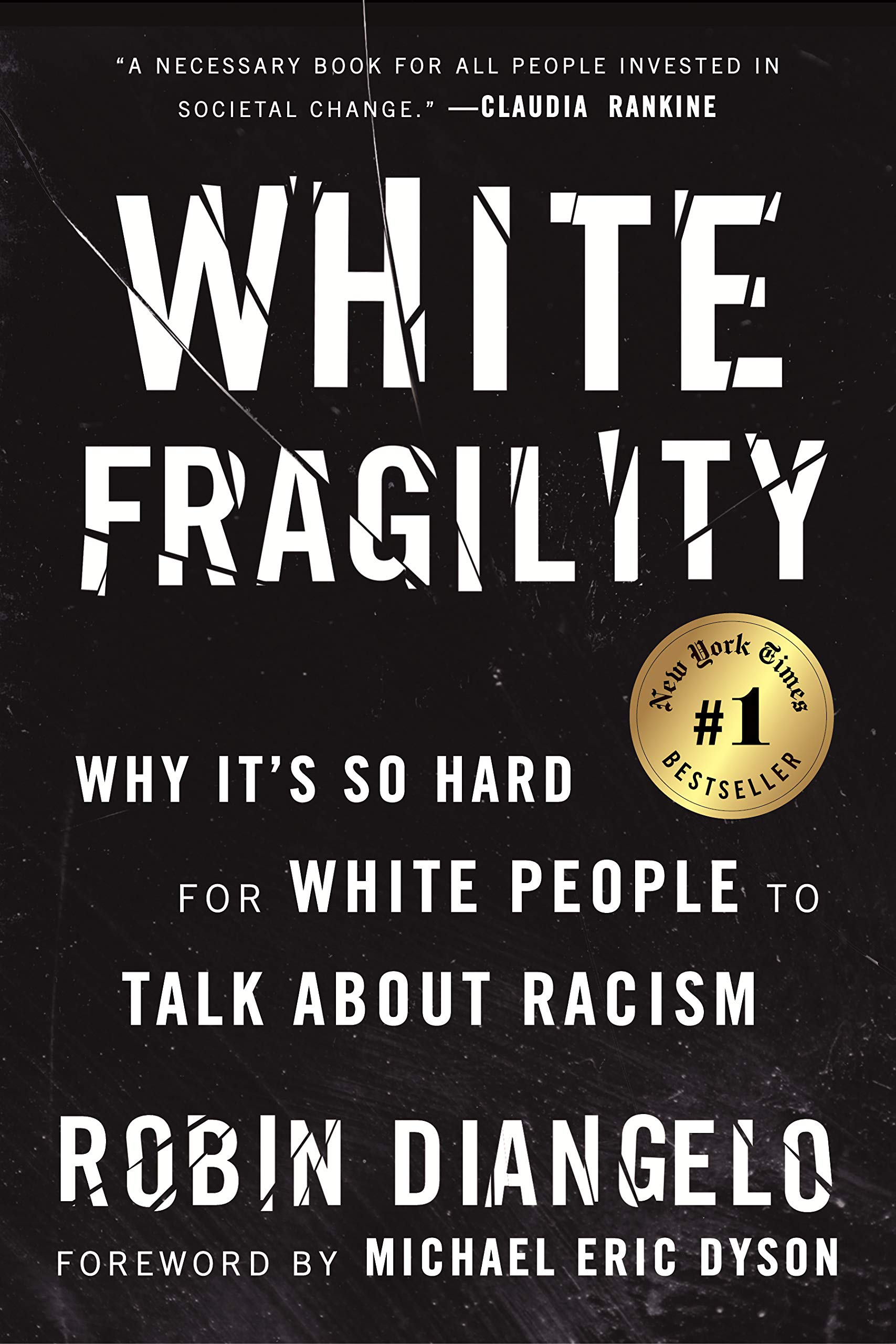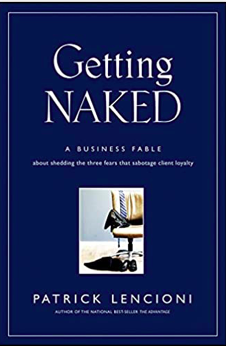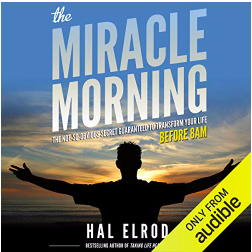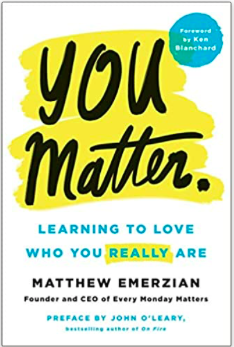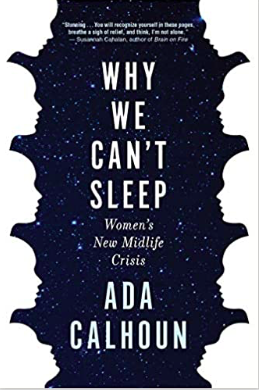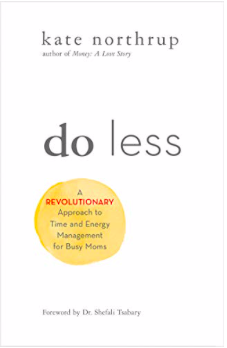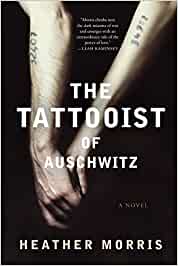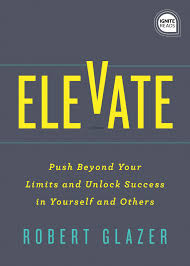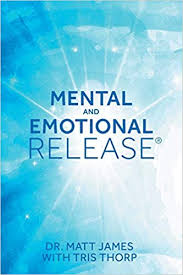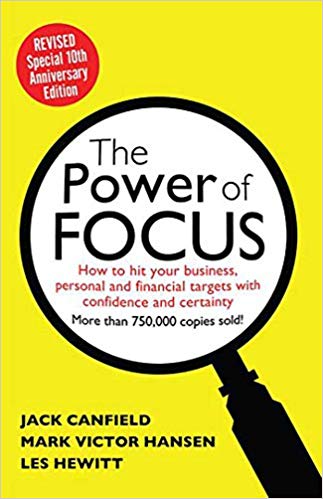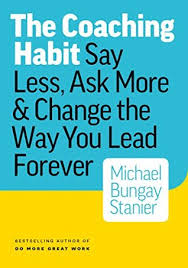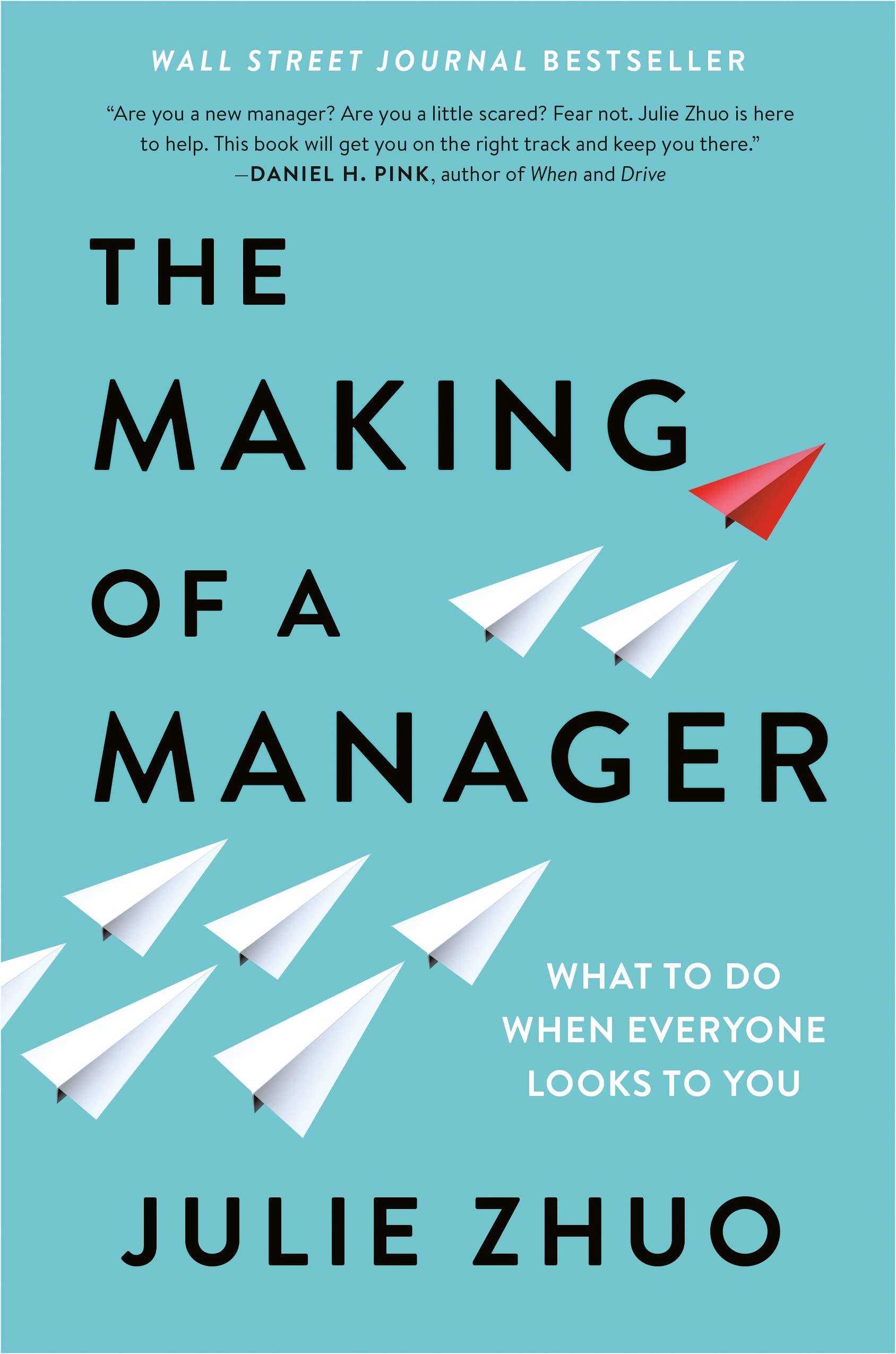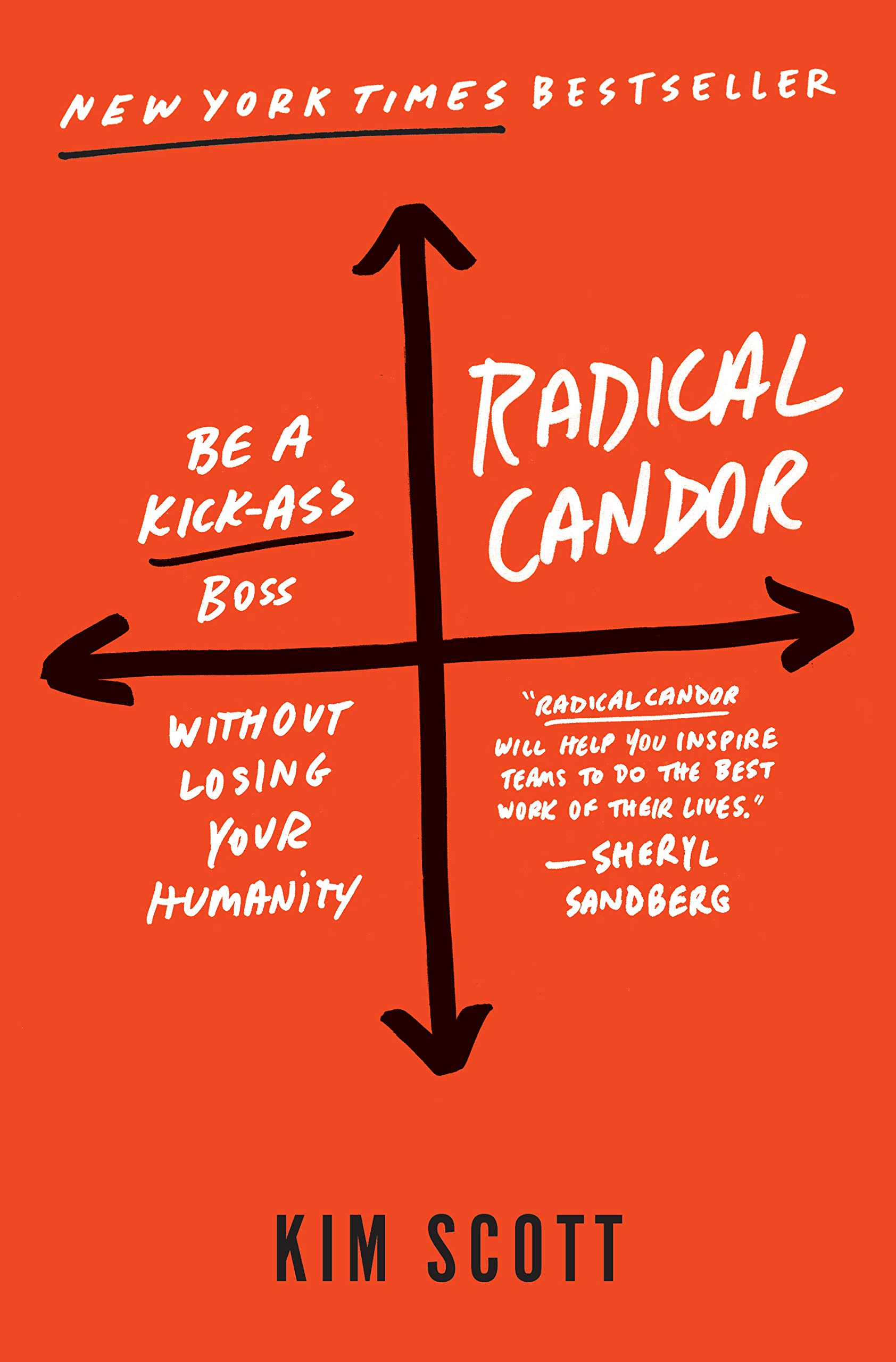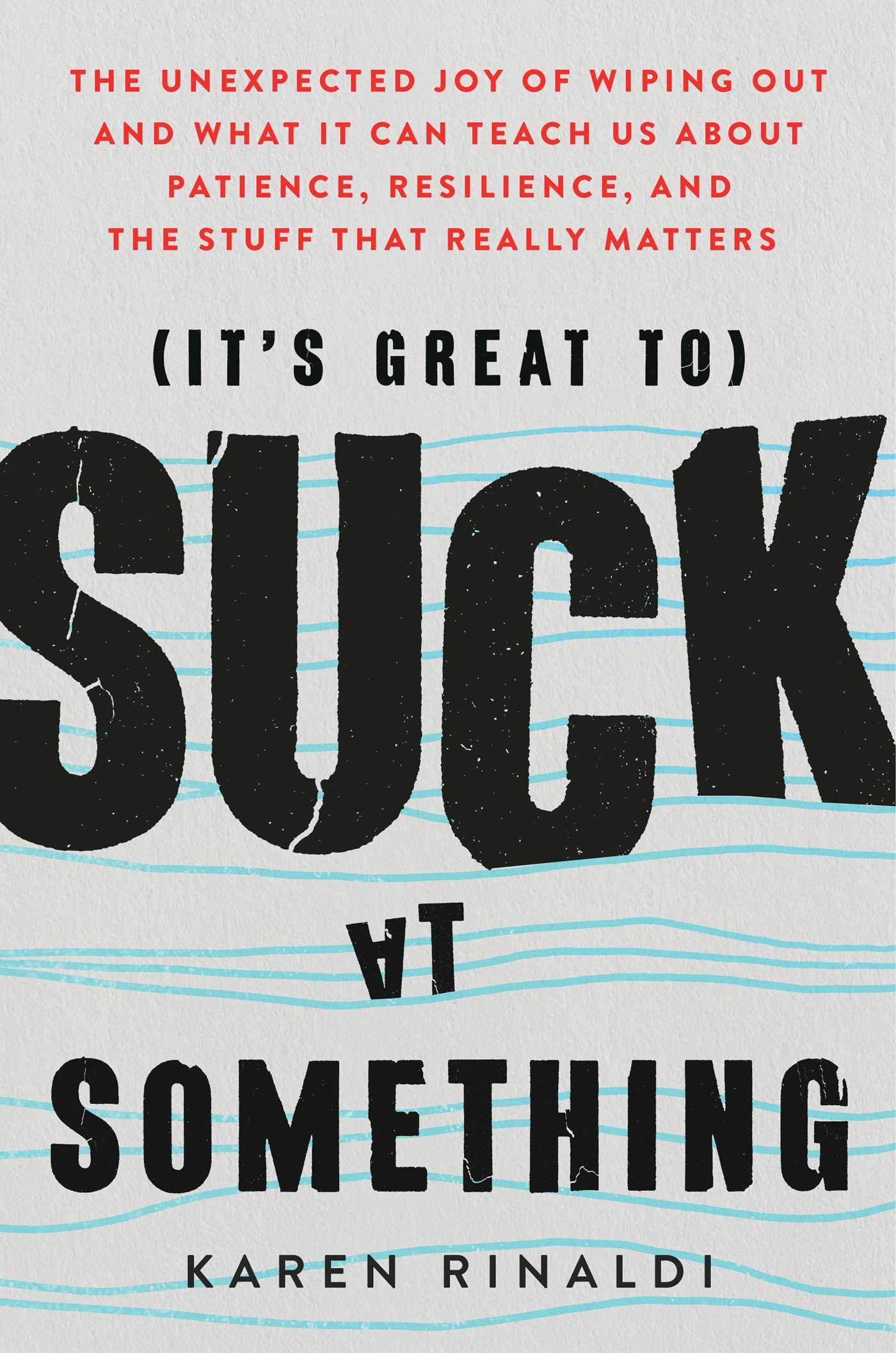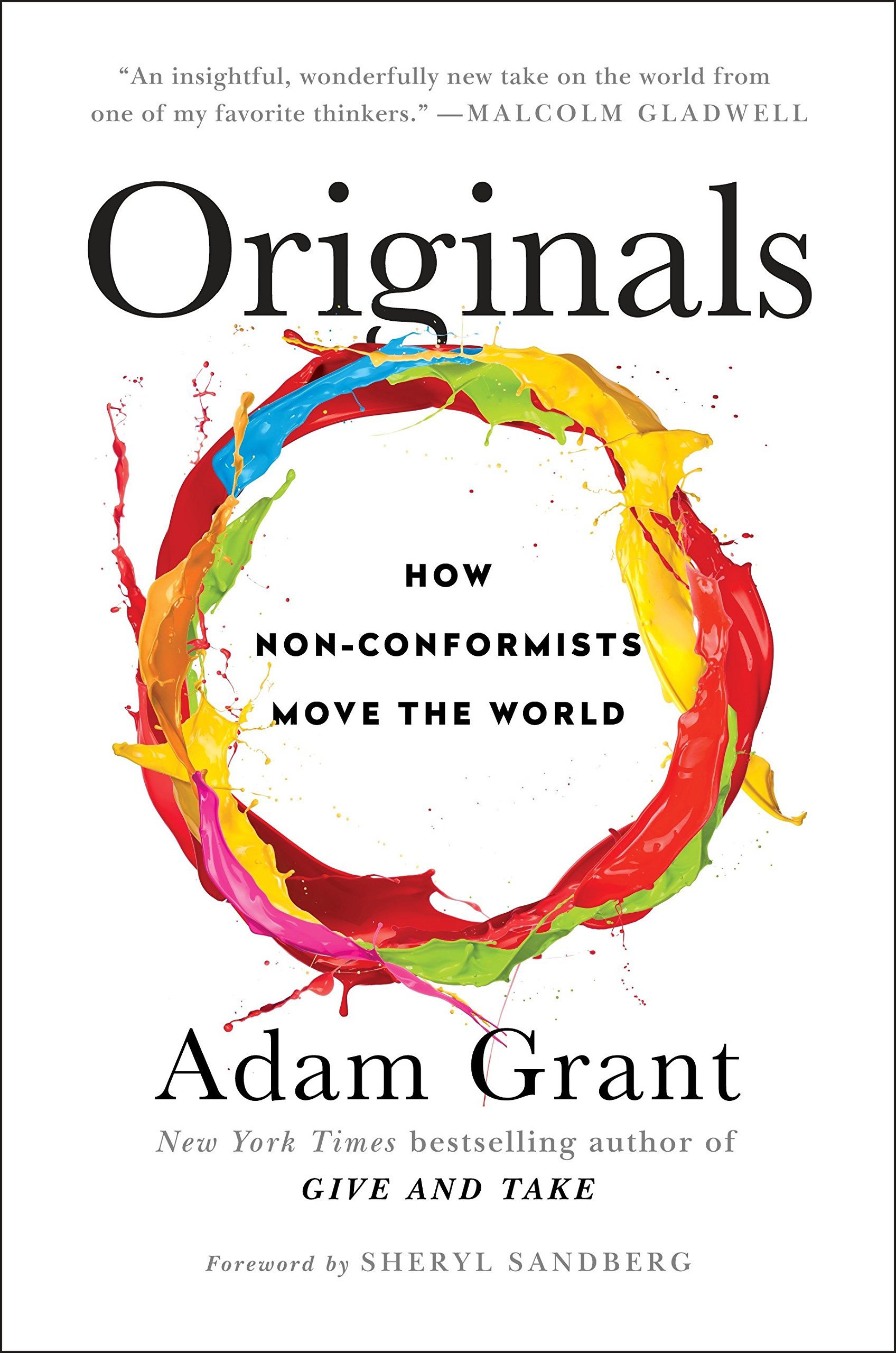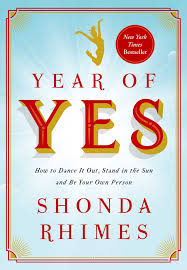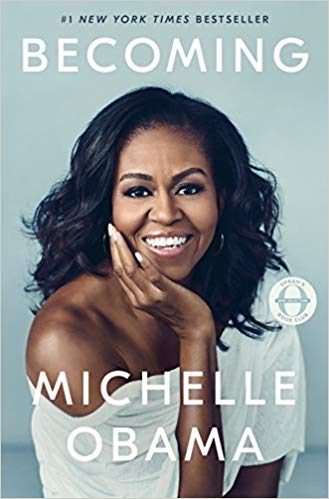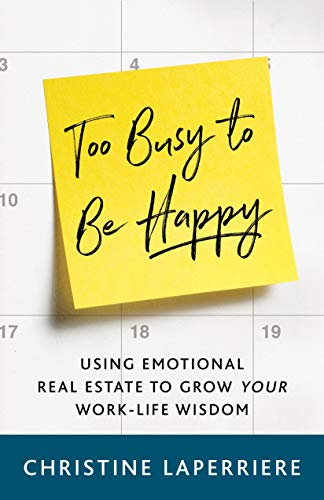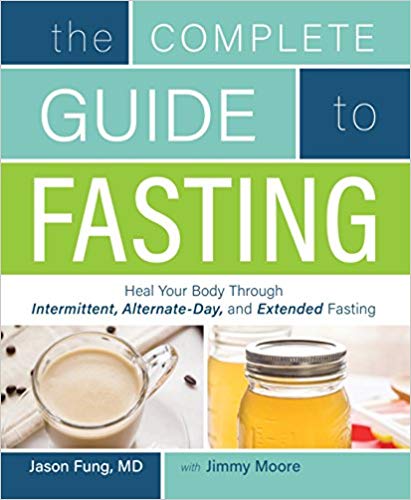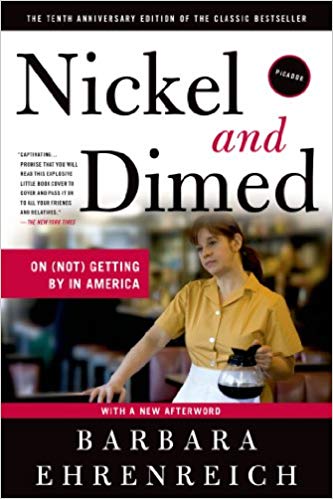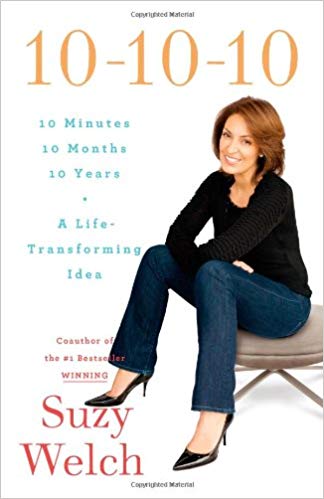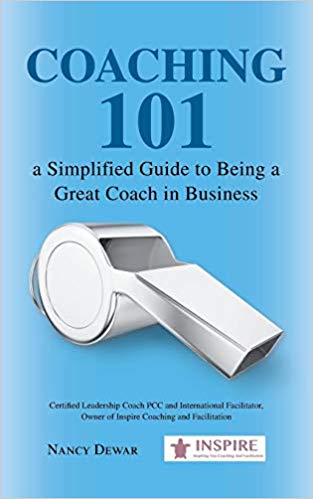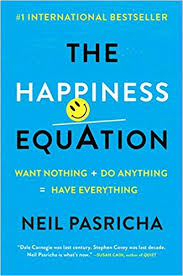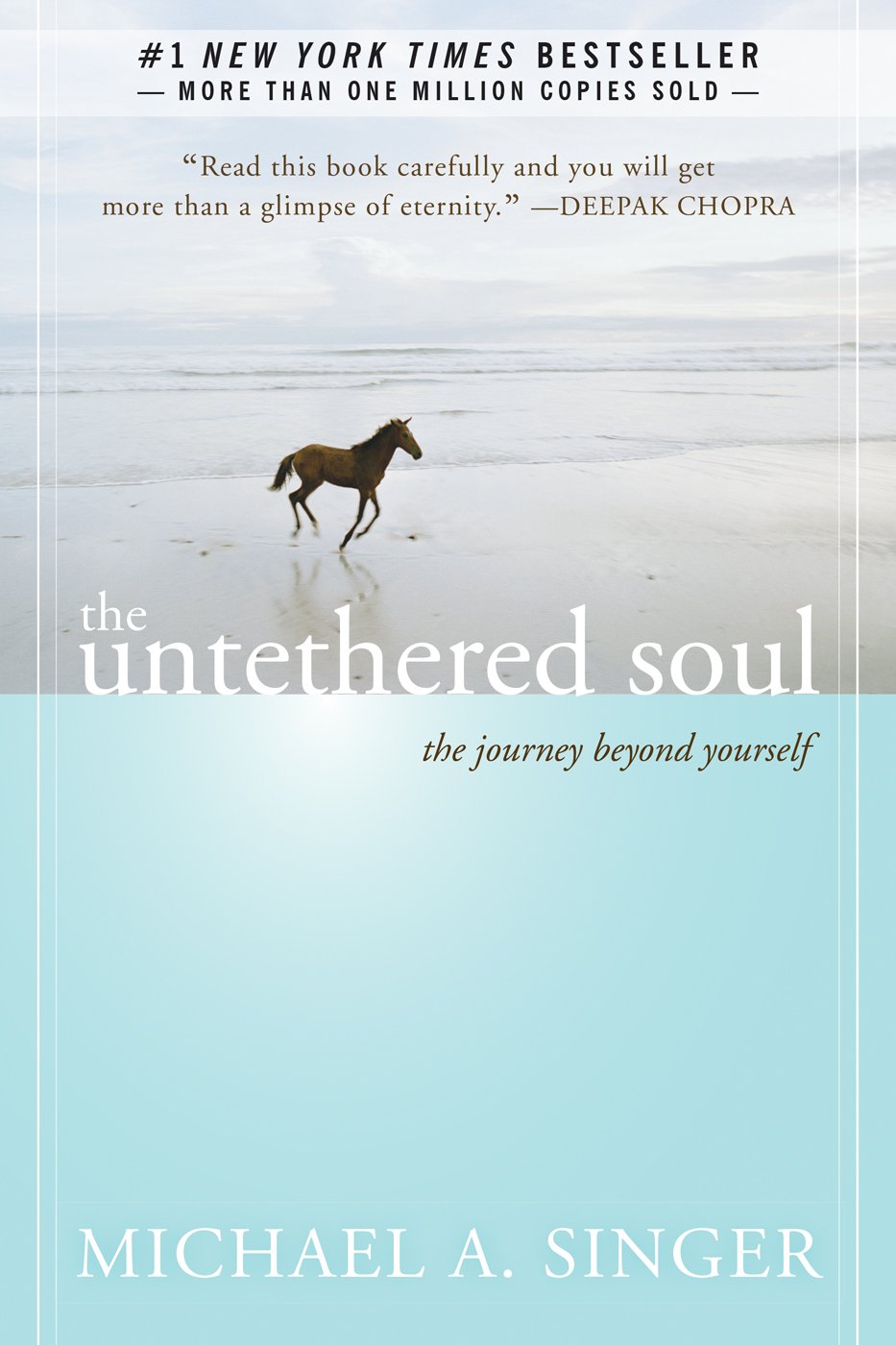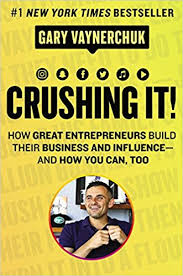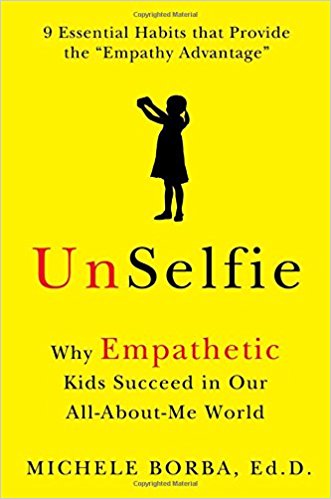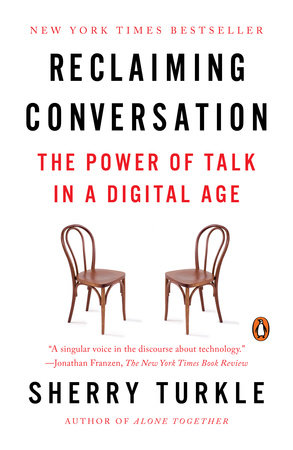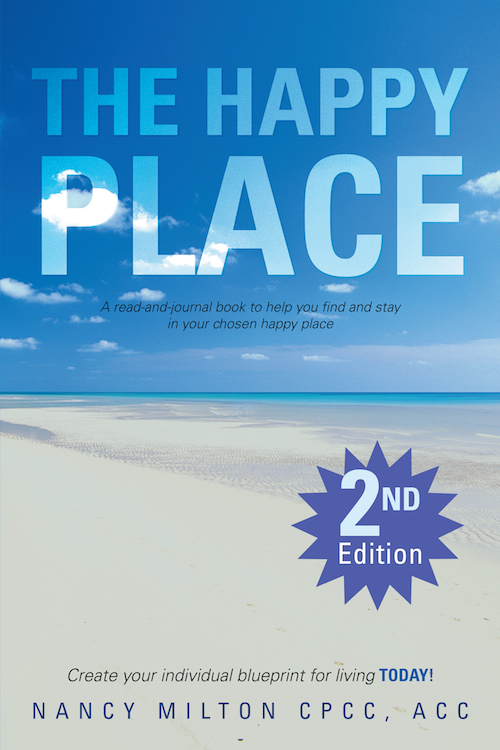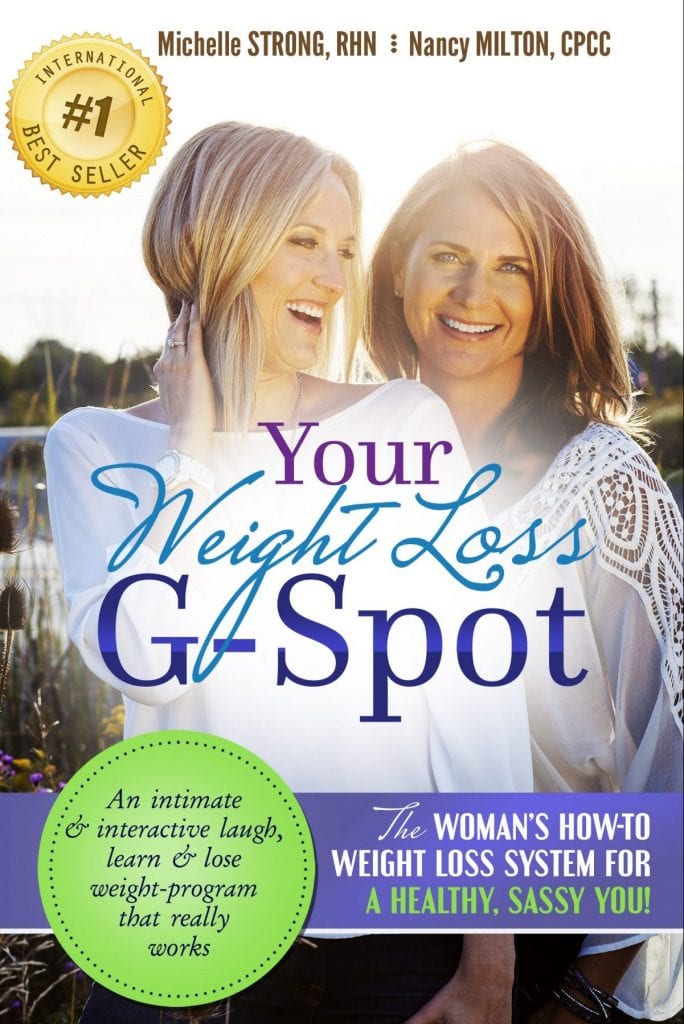
What I'm reading this month
A truly lovely collection of “the good stuff” — gentle reminders and timeless wisdom for living with heart, staying grounded in your values, and simply being a good human in this beautiful life of ours.
The book is made up of 150+ short chapters, each just a few pages long. It’s perfect for slow, intentional reading — whether you choose to explore one chapter a day, a week, or whenever your soul needs a little nourishment. Each piece offers something meaningful to reflect on and gently apply to your daily life.
When you’ve made your way through one chapter, move on to the next that calls to you. There’s no rush — just a steady return to what truly matters.
Past Months
May

A friend of mine recently shared that she was starting to read Doing Life with Your Adult Children: Keep Your Mouth Shut and the Welcome Mat Out by Jim Burns, so I decided to borrow a copy from the library myself. In my view, this book serves as a helpful guide for parents who are navigating—or preparing to navigate—the shift in their relationship with their adult children. It offers practical insights for fostering a healthy, respectful dynamic as roles evolve. If you’ve already raised your children with a strong foundation—open communication, clearly lived family values, mutually understood roles and expectations, and a willingness to acknowledge mistakes and grow from them—you’re likely already well-positioned for this next stage. This book will simply reinforce those principles.
April

A read I would suggest to anyone who is a taker or a matcher to grow their understanding and perhaps challenge their approach with their awareness of the impact they are having and can improve on/with others. The author gives example in all areas (from lawyers and people who stutter to eye glass frame sales staff and CEOs), supporting the book to be relatable, content easy to comprehend and thorough. For myself – perhaps of which of the three groups I fall in, I found the book good, and longer than necessary. If you want to find out where you stand, go here: https://hbr.org/cover-story/2017/01/b...
March

Staggering stats. Specific stories and examples (some may seem extreme, some relatable) Insightful on the world we continue to shape and it's negative impact on who we continue to be(come). More details on (video) gaming, social media and sugar/food in a parenting specific addition, including details on what to do/how to steps would be a solid society resource.
February

I audio read this book while enjoying walks. My dictated book notes are three pages long. I would recommend this book based on the number of tips and insights Jack shares for the reader to have the opportunity to become a better communicator. My only heads up to the reader: where I differ from Jack is how I connect communication to my value system. My approach is directly linked to how I live my everyday and how I intend to show up/be in every interaction. There were times reading Jack's suggestions that it's focused (in my opinion ) on the winning over (fair, what book is about) versus these skill be grown to be genuine life skills.
January

Ian Williams' What I Mean to Say is a profound meditation on the fading skill of conversation in our hyper-digital, polarized, and often isolating world. With his creative and experimental style, Williams delves into the essence of what it means to connect through words—spoken, written, or otherwise. Drawing on historical, cultural, and personal insights, the book examines conversations from multiple angles, questioning what is lost when genuine engagement gives way to superficial, transactional exchanges. Thoroughly researched and evocatively written, it challenges readers to reflect on their own communication habits in a time when meaningful dialogue feels increasingly rare. The final two chapters (4 and 5) are particularly impactful in my opinion, offering nuanced explorations of how conversations can heal, transform, and bridge divides. These chapters stand out for their depth and clarity, synthesizing the book's themes into actionable insights. Williams' reflections on the vulnerability and courage required for authentic dialogue leave a lasting impression, underscoring the power of words to foster empathy in even the most fractured relationships. Much is possible when we truly listen and connect. I will continue to challenge myself to evolve+lead with curiosity and attention with all five senses.
December

“The way I see it, being dead is not terribly far off from being on a cruise ship. Most of your time is spent lying on your back.” In Stiff, Mary Roach delivers an unexpectedly humorous and fascinating exploration of the "afterlife" of human cadavers. Perhaps because I explored the book through audio, she continued to surprise me with her one-liners and death-happens approach, which in turn has given me a lighter perspective specific to when someone passes, their body no longer represents (and even is associated) with the living being. I think this will aid me through processing the deaths of people around me in years to come. Mary’s book delves into the myriad ways in which donated bodies have advanced medicine, science, and technology, often in surprising and occasionally unsettling ways. From surgical training and crash test simulations to ballistics testing and even medieval medicinal practices, Roach sheds light on the significant, if unconventional, contributions of cadavers. Each chapter focuses on a distinct aspect of cadaver use, offering a mix of scientific insight, historical context, and cultural commentary. Particularly intriguing are the chapters on how crash investigators use bodies to reconstruct accidents and the evolving practices of burial and cremation. Her witty narrative transforms a morbid topic into an engaging read, punctuated by quirky anecdotes, historical tidbits, and a disarmingly candid tone. Longer than I personally needed it to be, educational and useful for shifting my perspective on processing death.
November

"How is it that the world keeps going, breathing in and out unchanged, while in my soul there is a permanent scattering?" A deeply moving exploration of a woman's experience with grief after the sudden loss of her father. The writing is both beautiful and candid, effortlessly weaving together personal anecdotes and insights on grief, mourning, and love. I highly recommend this book for anyone seeking to understand the complexities of losing a loved one and the journey to acceptance.
October

A great read on some product/brand/people biggest mistakes and the turn of events because of that mistake, that made it terrific! Twenty-three stories of examples we can all learn from - including how we respond to situations, our approach, our attitude and mindset. From Billy Joel to the Popsicle chapter, I enjoyed every story and devoured the booked in 48 hours. If there were five books in the series, I would pick up the second one today. If there were five books in the series, I would pick up the second one today. Terry O'Reilly is a great story teller and I recommend this read via audio so you can enjoy his delivery.
September

"Willpower – Th ability to control their attention , emotions and desires – influences their physical health, financial security, relationships, and professional success." This book is like an educational experience book (aka workbook). You read a section, and do an exercise. I am both a supporter and author of this format. The reason, many of us read self-help books and I wonder how many of us action what we read... I participated in the exercises which helped me with both the learning and the accountability. I would recommend the same to every reader. -I appreciate the reframe of willpower with instead three types of power: willpower, want power, and won't power. -The acknowledgement of how willpower can overtake many obstacles and its mind training combined with enough sleep, healthy diet, consistent exercise and breathing awareness/meditation I am practising things learned in this book and have made note to revisit it again in 6 month's time. I read I would recommend.
August

A phenomenal read that captures how we have negatively impacted this generation, that has literally effective brain growth in our kids, overwhelming sky rocketed teen suicide, mental health issues and anoxia. Insightful, educational, overwhelming, scary. Changes must be made for kids to have a better chance...at life. Johathan Haidt's book, The Anxious Generation. If you don't feel you can make the time to read it, here's the Ted Talk.
July

This book will be listed on my "top recommendations" reading page when I do my next website update. A thorough approach to improving your conversations and having the impact you want in every interaction. I will use this book as a reference from today, forward. A great resource.
June

I read it cover to cover in 24 hours. It covers a full collection of emotions (including a couple times I had to put it down, to reconcile myself). Within her story the acknowledgement of: -the role family/structure/community plays in shaping your life -how broken components of our justice system are -how real and quickly drug addiction is/happens -judgement of others, judgement of self...it impact deeper than most realize. Glad to have read and will suggest to others.
May

This was a lovely book choice to enjoy via audible while walking the beach. The waves consistently pacing the insights and guidance of Sunim, complimented and played in my thoughts.
April

The book is swift in pace, and that's appreciated. Clear messages without tripping over pompoms or participant ribbons Gary details seven "personal assertions" to live your life by: I am willing I am wired to win I got this I embrace uncertainty (vs counting on what you think it certain...) I am not my thoughts: I am what I do I am relentless I expect nothing and accept everything **I've got to work on this expect nothing assertion. This hit me... Notice the present tense above No past excuses, buts or Maybe soon. The edge of the writing helps to call you forth. I listened to (audio) this book and would recommend that based on the author's straight talk approach. I think it assisted with the book resonating with me.
March

Two take aways for me from this biography. *The terrific reminder that regardless of what is seen on the outside (aka...the Fonz) does not mean the inside will reflect the same. We are all doing our best, whatever that may look like to us in that moment as we figure out how to show up in this life of ours. *The power of silence. Henry reference his (starting to) realization of listening, really listening to people in chapter 11. A skill that would have served him beautifully earlier on in life. I enjoy the first couple of chapters. I found the book to be lengthy and a number of (possible) life learnings, being repeated in more detail than needed, which took away from the sharing + reading experience for me.
February

A sweet book that for me was a beautiful reminder of the important of having (real) conversations, speaking openly and honestly, building a safe space for yourself and for others to share, and taking the time to ask/teach others how to listen to you so you are heard. I enjoyed the conversational format of dialogue shared between the Laura and her mom and it reinforced the patience and practise one needs to have, in sharing these conversations that are important to our souls. And yes, I found it challenging where/when Diane was and wasn’t able to fully (in my opinion) hear her daughter. Laura was very patience. Lastly – the question chapter “what’s your favourite meal? Best childhood memory? Etc” has spurred me to create a list of questions for our entire extended family to answer. They will be collected in a bound + digital format for all to enjoy now and for years to come. My homemade version of Storyworth.com.
January

I have given this 5 stars. Not because "I loved it". Instead because there is so much here for me to explore - it is a gift that I need to unwrap...for the rest of my life. I borrowed this from the library and instead I will now purchase a copy for myself. As Eckhart Tolle says at the beginning. This is not a book you read. In my words - It's something you consume at your open pace, with the idea being to process/absorb/consider/practise. Much to learn. Thank you
December

Some of my misc notes… -Career (and brain) decline late 30s to early 5os! -the bigger your achievements, the harder you “fall”. -Crystalized knowledge (more like wisdom) comes with age. Field examples: Profs & teachers, historians. Three forces holding us back are: Addiction to work and success Attachment of rewards Fear of the climb Need to: Dev relationships Spiritual journey Embrace your weaknesses Questions to ask yourself at the beginning of each month: If I had one year left of my life, how would I structure this month? What would be on my to do list? What would I not worry about? Taking care of you: 1 don’t smoke 2 don’t drink 3 take care of your weight 4 exercise 5 adaptive coping styles 6 education (more ed = more stimulation. i.e. read more) 7 long stimulating relationships The 7 words: Use THINGS LOVE people Worship the divine.
November

A wonderful collection of value life living tips and reminders shared through Oprah's beautiful story telling talents. A terrific book to have in your collection, to pull from...anytime. I'm glad to have read this.
October
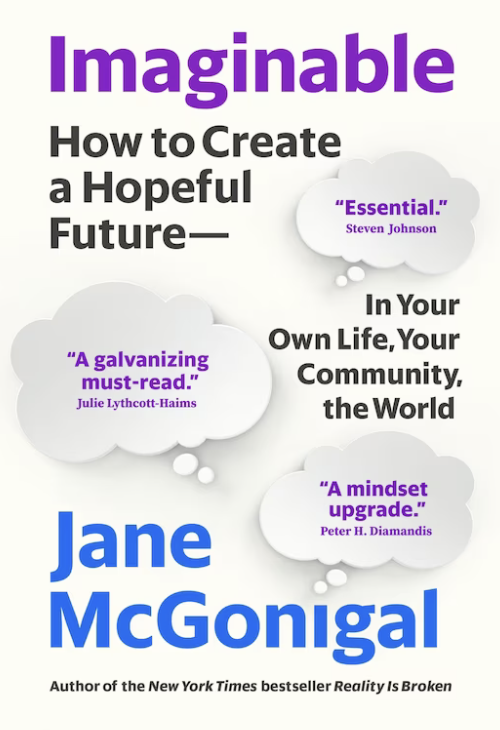
For me this read was an encouraging perspective on how to look at options for situations and future in a way that provided you a sense of presence, participation and control. This approach, as the author easily walks us through – example after example – gives the reader a feeling of “I have an influence in this situation” as they figure out how to adapt and situations and challenges. Our book club agreed that a couple tools/activities shared we’d like to continue to practise in our lives. These include: Urgent optimism Dator’s Law High Impact Low Probability HILP events And the 10 year window approach. I will challenge myself to explore this different way of viewing a situation then my current way. Refreshing, optimistic and future focused.
September
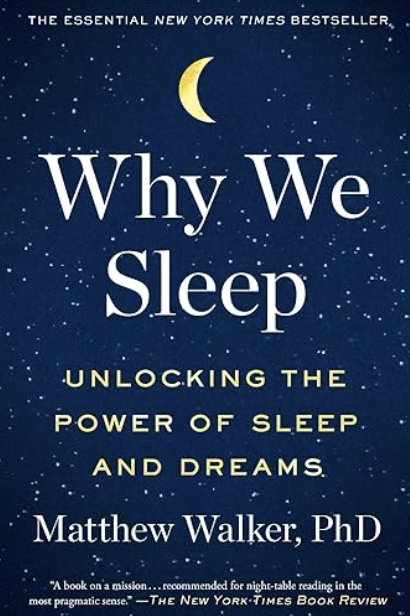
Reality and although not a surprise it’s just ‘even bigger’ than anticipated. Sleep is related to everything. EV-VER-Y-THING. Have a problem, try sleep. If are already not a good sleeper, this book may fill you with dread. It’s clearly well researched and written. Some new information for me: Circadian Rhythm – we are born with the awareness of 24 hours Night hawks and morning larks are born this way . DNA. Not lazy and not change-able Caffeine peaks 30 minutes once injected Caffeine’s “half life” is still circulating in you 5-7 hours later (which is why many people only drink in morning) I had no idea that x amount of amphibians and birds had half brain sleep! Interesting and now makes sense specific to your first night of sleep in a new location like a hotel. ALL BAD: -Any one working through the night -staying up to study Teens getting up early for school. *the misalignment of these activities with our Circadian Rhythm negatively impacts everything from retainment, learning, response time and missing of emotional cues. I would have preferred and appreciated more basic tips on how to improve your sleep, naturally. If useful to anyone, on this end I (attempt to) practise: -no screens after 8pm -lamp only in my bedroom at night -read before bed -no eating after 7pm
August
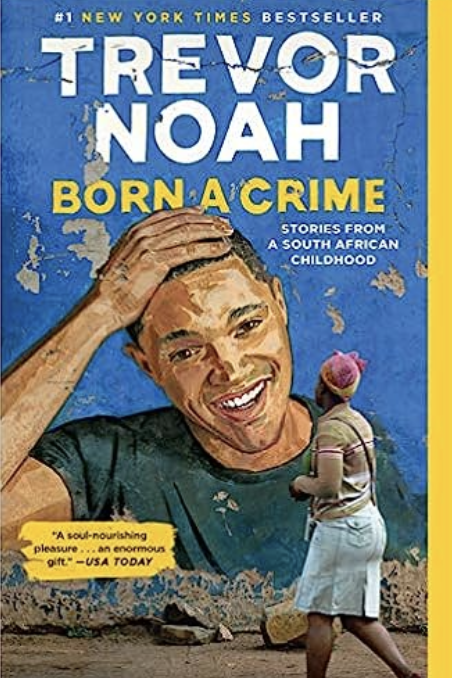
I "read" through audio (CD) and enjoyed hearing Trevor telling his touchstone experiences of his life. HOW he told the story challenged me to think about perspective I have been taught versus experienced and just as importantly, left me wanting to practise reflecting on my filters in situations going forward.
July
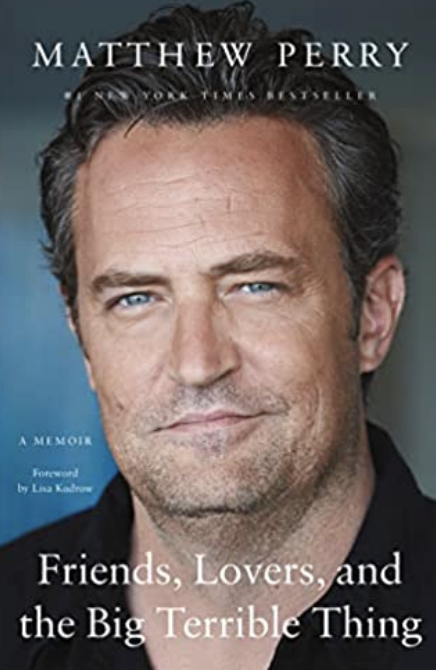
Audible was a treat to enjoy the author's voice while he shared his story. I am glad to have read it. Insight wise - an opportunity he could have (better) educated the reader on addiction gene. In my opinion, I think that would have helped us understanding or take his story in different. 65 times in re-hab. The exhaustion of that, few can imagine. His honest writing is appreciated, which allows us to see what missing pieces he continues to look to develop for himself. A spot on life illustration that money doesn't buy happiness.
May
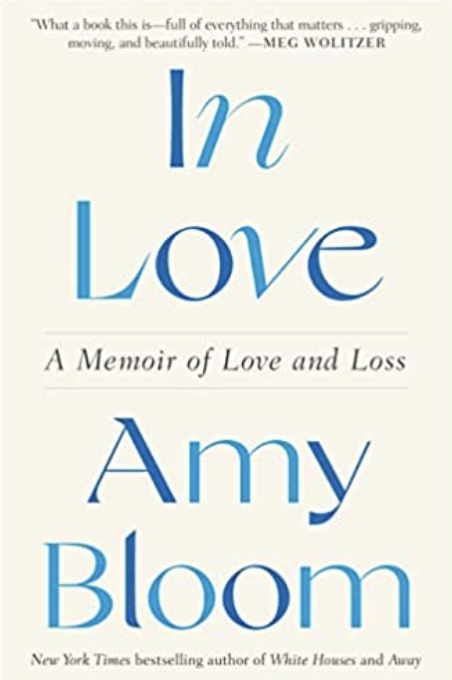
I am in Awe. And a bit stunned. Amy gives it to us straight. Her depth combined with her grit, love & commitment to her partnership and the raw "do the best she can to reach her husband's wishes while she stumbles on and over her own needs" is powerful, courageous and bold. I am very glad to have read this book. My grandmother died at the age of 99. She had a vibrant life until 95ish. My Mom and I in those final 4+ years repeated often "Just take me to Switzerland. Please." The ability to learn through the experience of Amy with Brian was insightful, helpful and...a gift. I would have appreciated hearing more about the actual Dignitas's requirements/process and in the same breath, the amount we did learn was "just right" for the way the memoir was written.
April
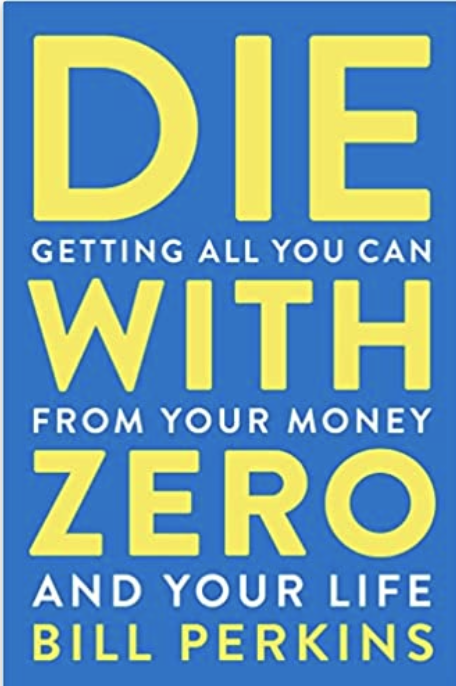
The concept of living now (within reason) versus only saving for your future. A great message that I share with others and remind myself of often. And when I say "often", it has surprised me how often I have referenced this book in conversation since I read it. For me, pre-COVID I felt like I was pretty good at making life happen. This book gave me that "shake reminder" to live now. If you are one who feels stuck in "functioning" versus living your life, a good read for you.
March
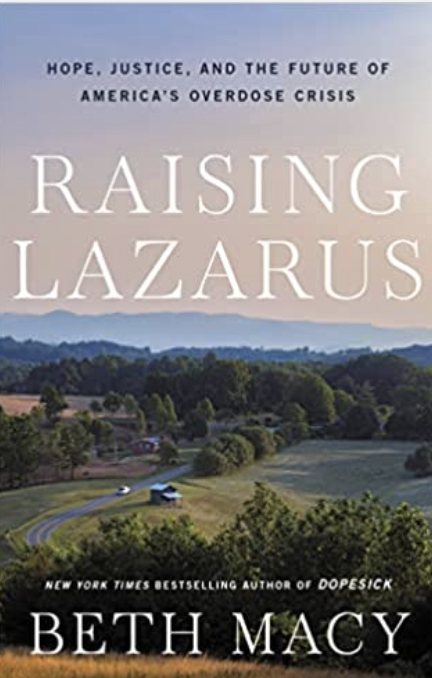
I have not read Macy's previous book, Dopesick. Raising Lazarus is a thoroughly researched, insightful read that has deepened my awareness of both how bad the overdose crisis is, as well as the ignorance specific to treatment and improvement. I still have questions (surprise ;0)!) For now, I have more educating and exploring to do. I will be researching how I can best help locally. I am glad this book was suggested to me.
February
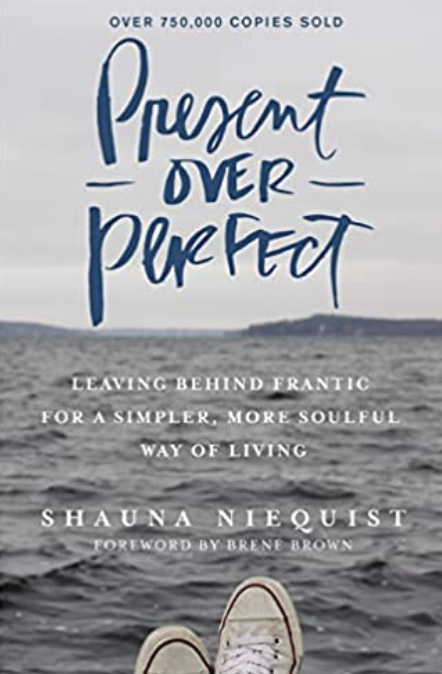
Brene Brown referenced this book so I borrowed the audio version from the library. The title is a solid message and I align with the author's definition of perfect (aka not real). The book is more of a memoir; even a processing journal, then a self-help book. For me, there were some life reminders to keep me anchored. The story she retold about the man in the black tuxedo is an example for me, of that anchor. The depth of her religious writing was a surprise, and unexpected. Perhaps challenging to fully connect with some of the author's points based on what her realities are versus the typical woman at a similar age. (social status, career success, solid partnership, healthy kids etc) Agreed with this reminder: It’s easy to be liked by strangers. It’s very hard to be loved and connected to those at home when you just bring them the ’scraps’. which can often be the worse parts of you.
January
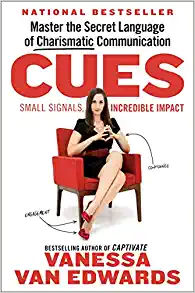
This is one of the better communication books I have read for a couple reasons: -the detail Vanessa provide on both how to improve (versus what to improve, the tiresome approach of other authors) the impact the improvement would have -the complete approach she took for the amount of areas she explored within communication. I will utilize this book now like a reference resource. I will also suggest it to others. Warning: -if you are already a good communicator, you would be better off with a 2.0 version -the Audio version of the book is read by author. Surprisingly, her voice wasn't a match to the material, in my opinion.
December
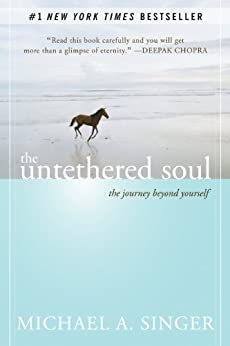
I started this book a number of years ago, suggested to me by a friend. I wasn't ready for it yet ;0) I recently read, starting at page 1, and thought it was a gift. This is a book I would like to read annually, to continue to reinforce how I approach living my life. It's your book to explore.... Some take aways for me include -an expanded awareness of how to listen (at the level I want to be at) -tips on better adjusting and releasing inner voice (crap) and being in present -relax and release 100 more points. And they are yours to note xo
November
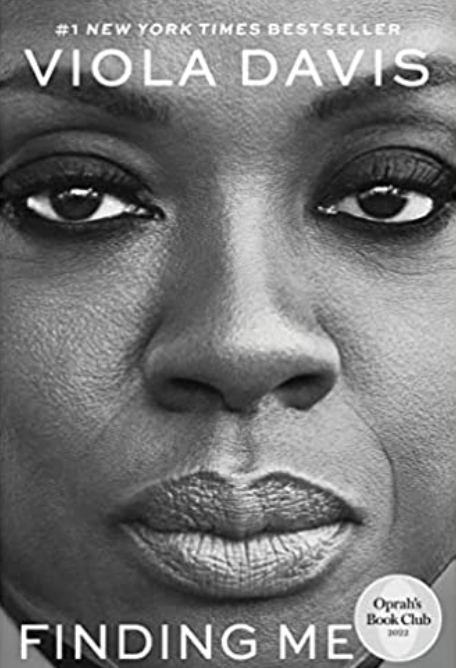
Riveting Brilliant Raw honesty Viola's story is one that will bounce around in my head and my heart for a long while. Her on stage presence is what urged me to read this and learn more about her. I'm in awe of her discipline, her determination, her grit. The insight of her life touchstones, and her ability to shape her life through them - her drive, perseverance, and ability to dig deep WHILE pulling and/or sorting through her u-haul of life experiences is an illustration of tenacity, courage and dedication to making a better life. Viola Davis appears to becoming part of my head sound track.
October
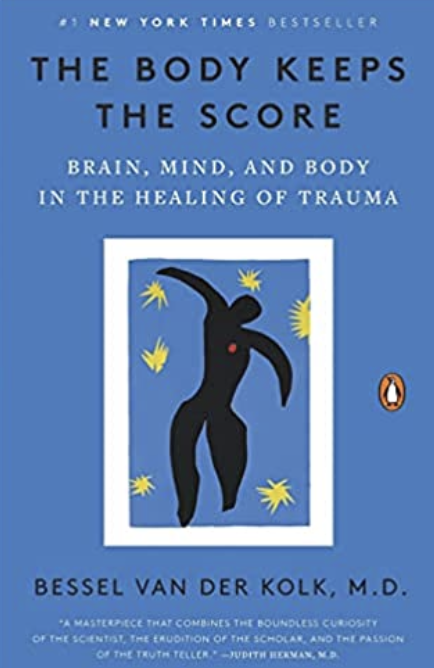
I am glad to have given this book a try. It's heavy. I was able to get through it (16.5 hours of it at 1.4 pace) only because of audible. I definitely would not have made it 25% of the way if I had to sit and read it. The number of tragic stories shared... stifling. In my opinion, phase one of this book was much longer than it needed to be. As I reader I just wanted to say "we got it (already), let's move onto the options & ways to help people through their pasts and thrive". Phase two I found insightful. Detailed descriptions of a variety of treatments, activities, and services that COULD play a role in supporting an individual. What would have been useful if this was organized and presented differently. I feel like I was left with a bunch of options yet not a clear pathway of which are a better match to these symptoms/types of people/experiences etc.
September
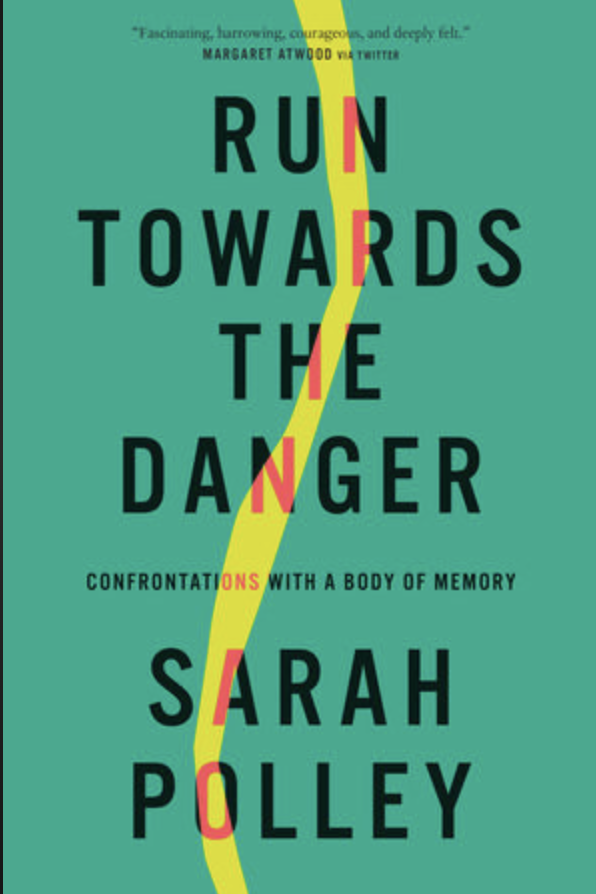
Run Towards the Danger was recommended to me by a friend and book club member. I remember her energy around the impact of what she read and the author's approach, and not sure if we discussed what the book was about. I just reserved it at the library. First - Polley's mastery of the english language moved me as early as the preface. This continued throughout the six essays, both in the visualizations she continued to create for the reader while illustrating her perspective as well as how she shared her insight - for us to consider, without being force-fed. Three chapters are percolating with me now; either on how I can play a role in shifting the situation (Jian Ghomeshi sexual assault chapter and how the Canadian system currently deals with criminal sexual assault cases) or how I can apply approaches to my life or share the insight with others through my work (Concussion/ Run Towards the Danger chapter and The fullness of the whole truth). Could six essays be written about various individuals pivot points or lives checkpoints, sure. Could it be done in such a way of shedding such insight, education, and possible prods to help you figure out your own? I am glad to have read this book. Thanks for the suggestion Kelly Power!
August
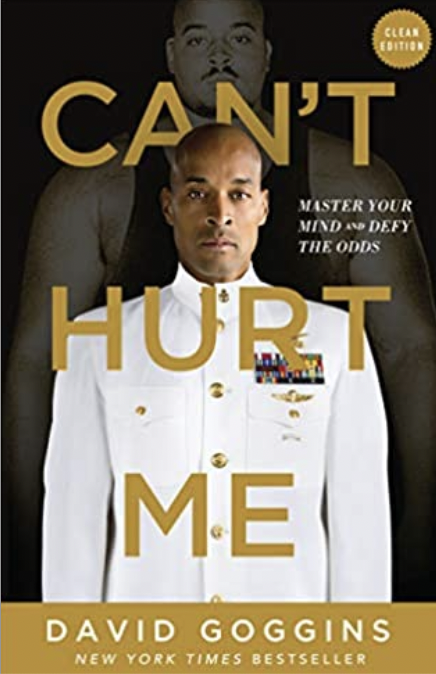
Where I am in my life to date, I was able to comfortably read this book and consider his perspective + what makes it work for him, and learn some tidbits for myself, without drinking the full glass of his kool-aid. His ability to mentally push through things reminds me of news stories of parents picking up the weight of a car that has pinned a child. His focus on some specific areas of his life give him what he has decided he needs (for a full life). Not what I want for my life and I appreciated hearing of his ability, tenacity and process. Callusing the mind was a new approach for me to hear of and one I am now tossing around in my head for where I might apply it.
July
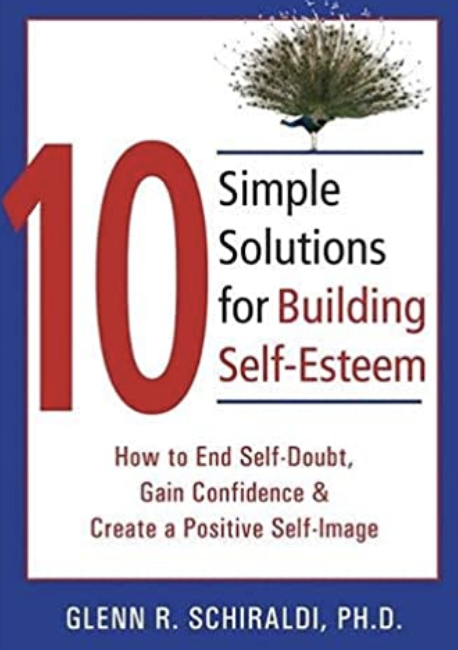
This is a solid book for easy to follow steps for improving self-esteem and confidence. This as part of the core school curriculum in all classrooms both at grade 2-3, and again grade 8-9 would be beneficial to our communities, and our society. Glenn does a good job at capturing ideas on his blocks for both what to do and how to do it. *Commonly we skip the “how to do it” part in books similar to this, which in my opinion makes them not so useful. I appreciated Glenn’s self – esteem description and the amount of detail used to speak to the mass variety of negative thought approaches we use (to improve our own awareness). Two items that I will remind myself of: -the beginner’s mind. The mind with little (aka no) expectations and assumptions. -Vastness. In my words it’s like zoom in/zoom out – see things from places that provide the depth and distance for the viewpoint of objectivity.
June
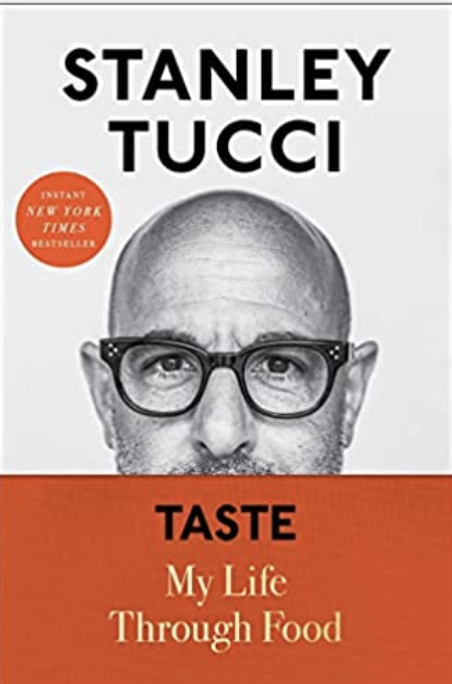
I am a Stanley Tucci fan. I enjoyed reading this, being able to hear his voice in my head and learn more about him personally - through his family's passion for their food. I enjoy food and am not a foodie. To hear such love and energy around specific dishes, I appreciated and find I'm starting to eat slower to connect more with my meal!
May
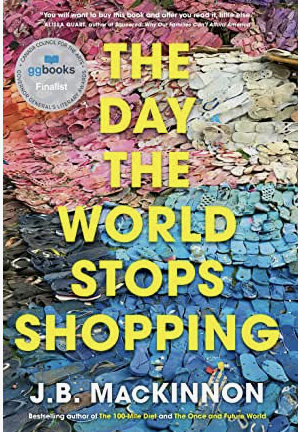
A detailed, eyes-wide-open on how we as a society are consistently participating in “utterly meaningless consumption” that is exhausting our environment, our lives, our earth. A couple tips for me: -we MUST buy less versus “buy thoughtfully” -we MUST promote companies to make quality, longevity built products and hold them to standards differently specific to life cycle of product, how users can have items fixed/mended and the organization win for being “that company” versus profit run, quick-hit products. -Currently society is generally focused on extrinsic values versus intrinsic. If shopping was done less (i.e. beginning of covid, millions closed from retail therapy and we saw huge, positive impact) we can make a severe, positive impact on our earth. During the first 6 months of COVID we also saw an “epidemic of kindness” (the reaching out to others), more gardening, more physically activity, surge of social justice. IF we turn our back on consumerism and turn towards a life of simplicity (versus status and income) we can make this shift together, rather quickly. -We need to rebuild our systems. We can create a new role in our community instead of consumerism. We instead can call is participatory culture which includes learning, giving, experiencing things and connecting. -The World is consuming because it “doesn’t know how to stop”. Literally. And appear ok to kill our earth versus “buy less, buy better” model and give to ourselves from the inside out.
April
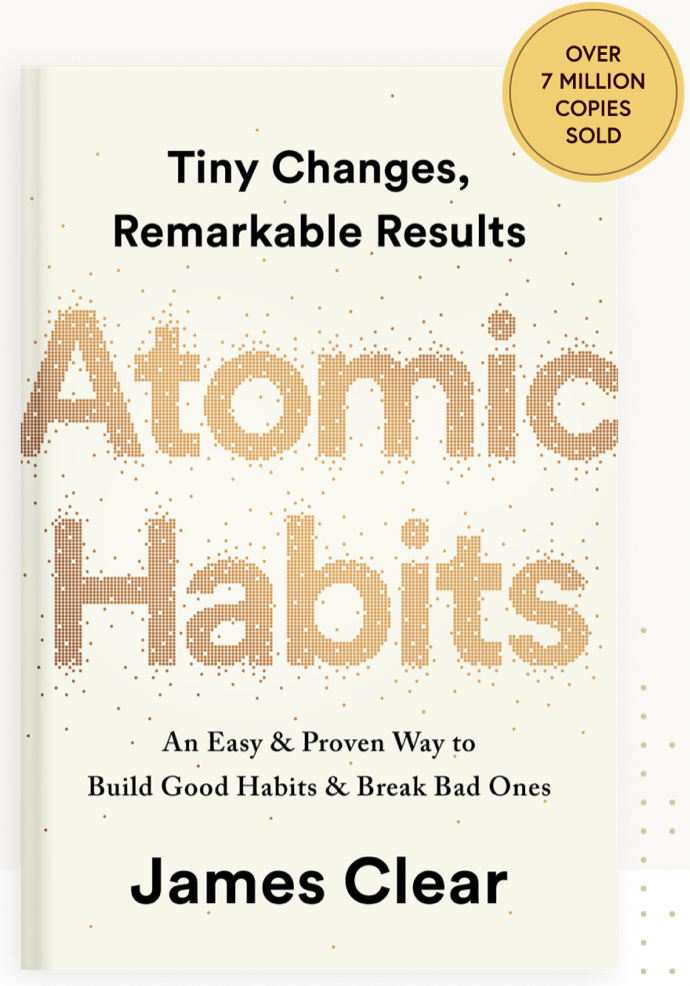
I've read a number of books on habits including The Power of Habits Tiny Habits The 5 Second Rule The 7 Habits of Highly Effective People. This book, perhaps also through the enjoyment of having the author read it to me through audio read, "just made sense". His process to create habits is echoed in his writing approach. A terrific book of tips and techniques (surpassing the majority of self-help books I have read) focusing on what to do AND how to do it, in easy to do small steps. A great resource
March
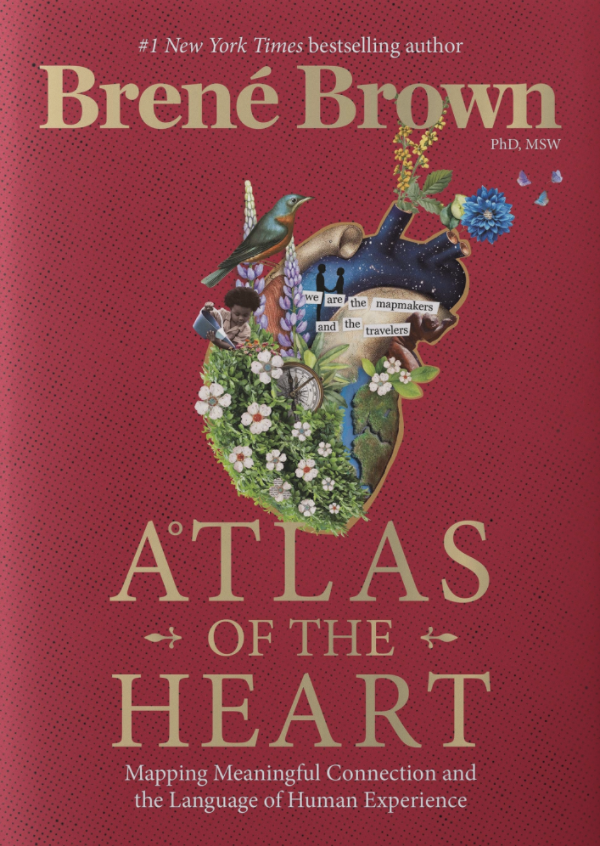
This was another book club read and agreed by all it was our best read and discussion to date. For me personally, I had loaned this book from the library. Twenty pages in I knew it was a book I need to purchase because it's a book I will reference and utilize in both my work & personal life, for many years. Brene's ability to challenge herself and each of her readers to better understand whole hearted living, through an in depth exploration and definitions of dozens of emotions is a gift. Atlas of the Heart would be a great learning text book for all individuals, globally. With this link you can find her book club conversation with her 2 sisters on the book as well as more details on qualities covered in her book.
February
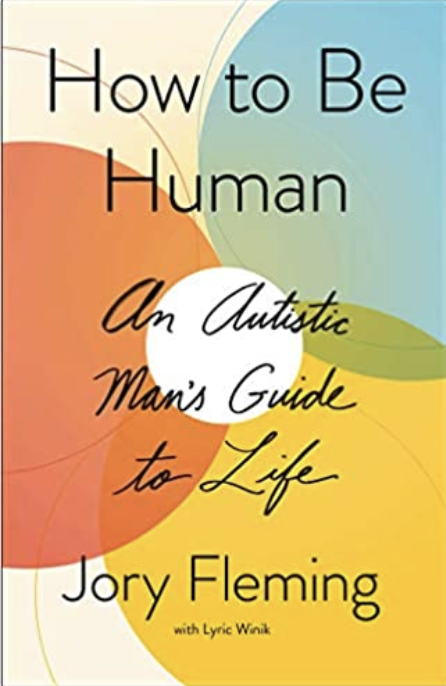
This was our book club read and feedback on the book was mixed; two decided to not finish it, two loved it and the rest of us were "take it or leave it". Something I appreciated from this read was how different Jory's perspective on the role emotion plays in life, compared to my own. I have considered this in situations since finishing the book and I will challenge myself to continue to find what best works for me. To help explain this his approach based on how his brain naturally works, here's a quote from Jory, page 75. “Emotions seem to be happening further away from me. If I do nothing, then whatever emotion it is will just stream past and then it will be gone. It’s not that an emotion is less important, but it’s less immediate. Even really strong emotional speaks take up a little more than a corner, but never so much that you can’t see the rest of the situation.”
January 2022
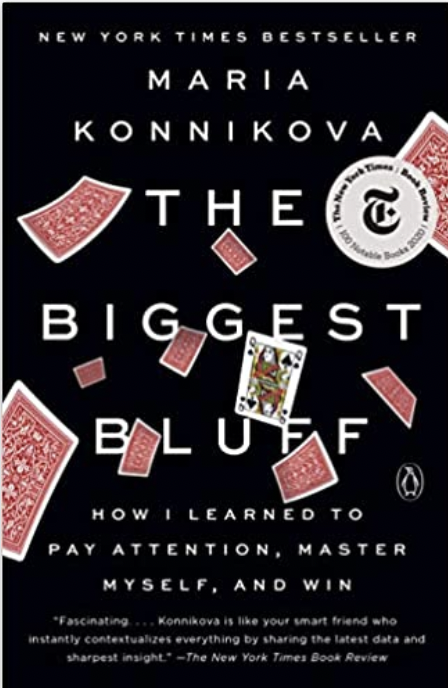
The "how I learned to pay attention, master myself and win" captured my intrigue. Having only played poker a couple times, as you can imagine, the game details were challenging to follow in the writing. Maria's writing reinforced life skills that radiate importance in the game of poker. Here are a couple that most stood out to me: 1 - Lack of ego. Important to consistently be able to objectively review & reflect on what you could have done differently and better 2 - Self-awareness and self-discipline is KEY. It's about clear decision making always. Know why you are taking specific actions. 3 - You can’t play scared. You can’t be afraid of how you look. You have to play smart. In my opinion - three great things to apply to day to day living as well.
December 2021
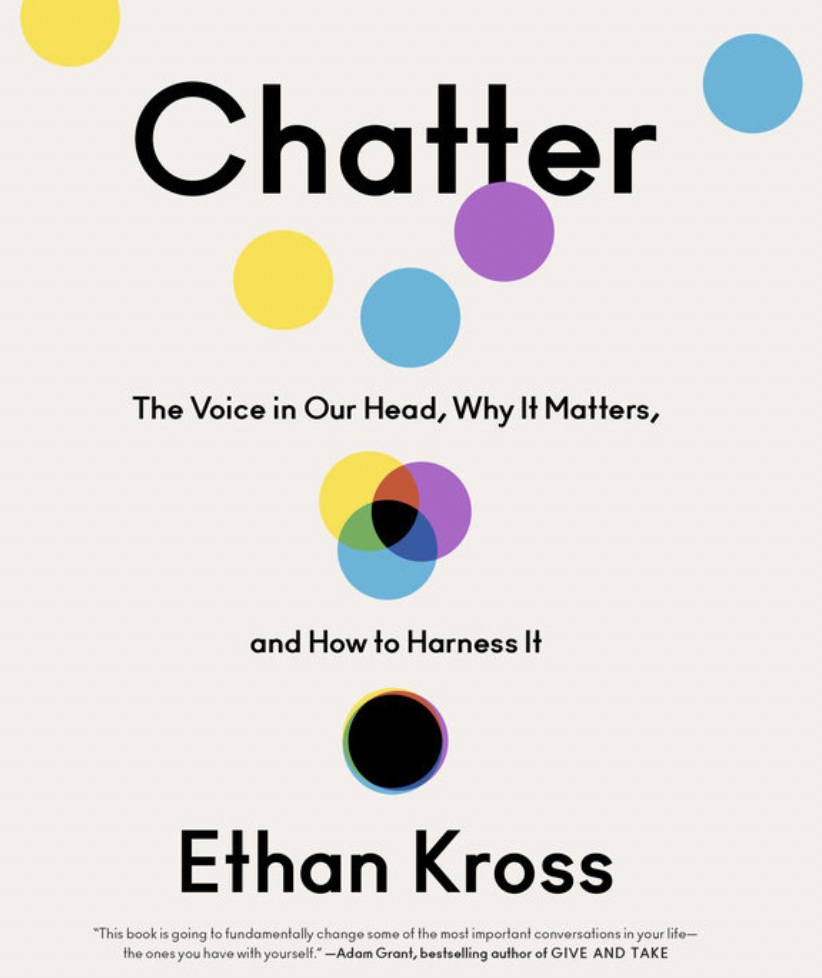
Two nuggets I continue to practise from this read. One - Zoom Out - Zoom In: When I am too "zoomed in" I picture myself looking through one of those darn Hotel bathroom mirrors. The round one with the circle light that makes any blemish on your face... shockingly huge. I visualize this mirror because it makes me laugh and reconsider how "too close" I am to this situation. That can through emotion, taking it personally, being subjective. This helps me to literally take a step back, to see it from a healthier for me objective perspective. Two - Use of my name: When are our tough on ourselves through our inner critique, we can quickly spiral into "I suck because _____". When I remove the "I" and address myself as Nancy Milton, I smarten myself up (which is the 1970s parenting way of "get it together") which helps bring my back to focus on the full situation. The last chapter of this book shares a summary of key book ideas - useful for a reminder & review of the techniques.
November
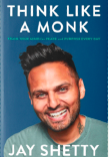
Think Like a Monk was the kick off book for this season's non-fiction book club AND we all agreed, a solid read. The book is like a combination of a number of self help guru's tips you've heard/read over the years allowing the read to be encouraging, insightful and reinforcing. Some specific take -aways for me include: -monkey brain techniques (yes, the wandering thoughts stuff) -detachment (been practising this through October and already seeing improvement) -a better approach (for me) specific to meditation
October
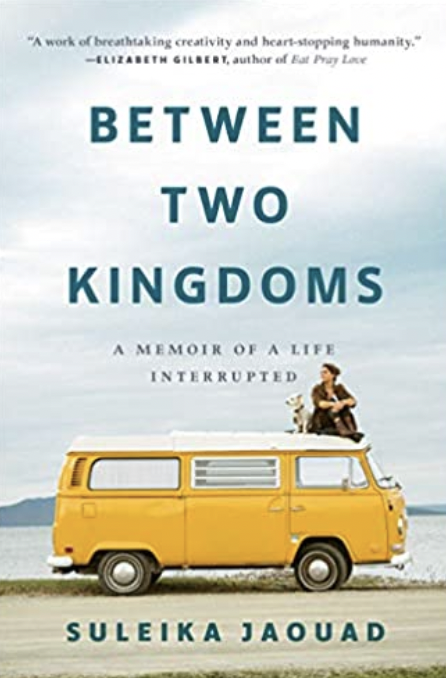
Suleika's memoir captures her detailed experience from diagnosis to recovery. As a reader I would have enjoyed part one to be told 75 pages more succinctly and add those pages to part two. What I appreciated most about this book was what I learned both for and about myself, while witnessing someone else's journey.
September
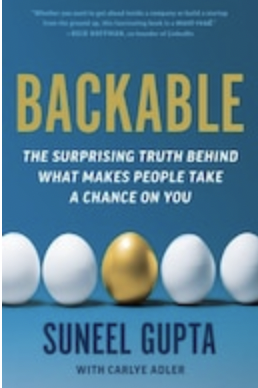
I contacted 8 different corporate clients after reading this book, encouraging them to read it and use it with their teams. Suneel captures 7 steps, insightful techniques on how to better engage individuals in believing in your idea/service/product - You. Suneel says "7 steps" and I'd instead suggest the book is full of nuggets and tips on how to let the real you shine through to build the partnership/connection/backing you're looking for. The challenge to you: Reading it's one thing, actioning it consistently, is where the good stuff actually happens. Over to you!
August
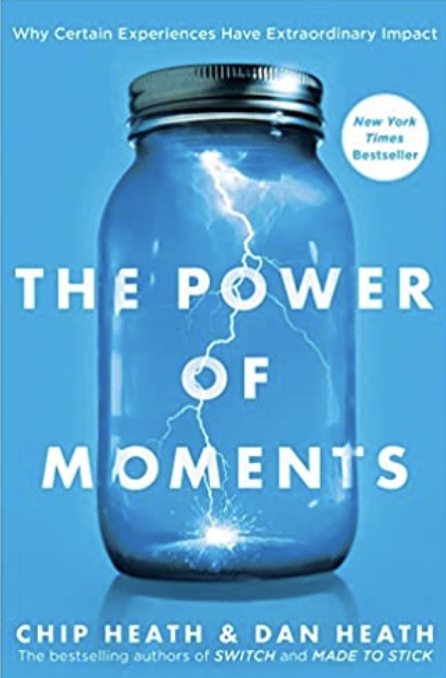
We have all experienced moments in our lives that have had tremendous impact on us. Chip & Dan's book explore four elements that are key on creating that impact, detail the components within each element and how we can better ignite these in our lives, our work, our teams. Three personal take aways from this read are the improved degree in which I understand the number of variables that can both create and shape a moment, the what + how of those variables for application and a new perspective on how to approach situations to have...more powerful moments.
July
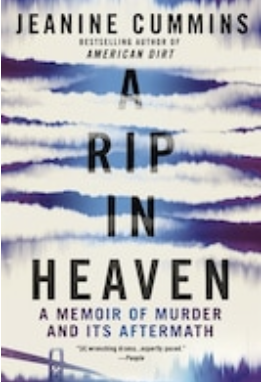
After reading two of Jeanine Cummins's fiction books, I easily picked up A Rip in Heaven, not fully aware of what I was stepping into. The author provides us a tough to fathom, step-by-step process of what her family experienced with the vicious murders of her two cousins Julie & Robin Kerry. Reading this book gave me insight on where we easily get caught on focusing (the murderer and the level of the horrific crime) versus the victim. I'm still processing the experience her brother Tom went through during the investigation process... We have much to improve in our 'systems'.
June
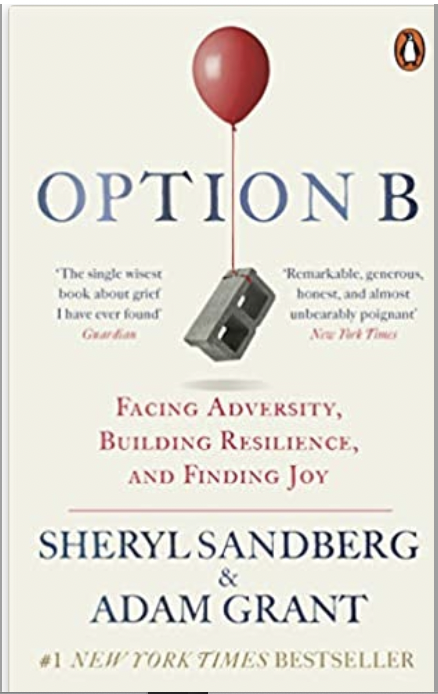
The majority of us are taught little about death; including the grieving process and how to be around + support others while they deal with the loss of someone they care about. Sandberg's book is, in my opinion, a must-read for us all. The insights and suggestions are useful and can increase our humility, empathy and ability to be present for both ourselves and others.
May
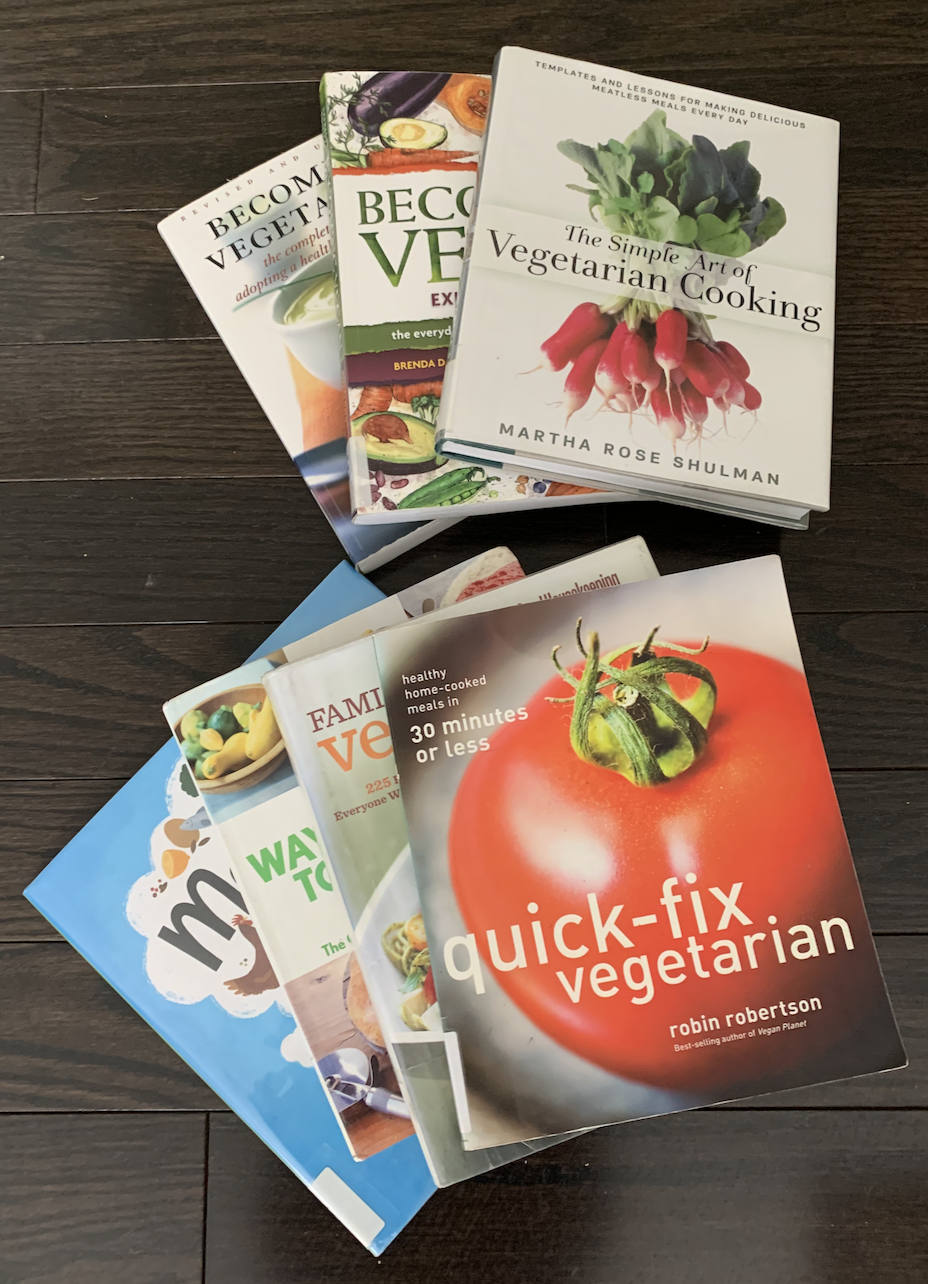
As I continue to watch, read and hear about the impact of meat manufacturing on our earth, I am exploring more about vegetarianism. Neither of my boys have any interest which adds to my already challenged kitchen. Simply - I'm educating myself and exploring as I go.
February
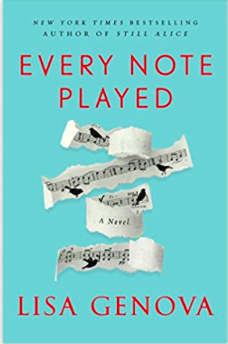
I typically share non-fiction reads on my website. I'm posting Lisa Genova's work, Every Note Played because of what it offered me educationally, while being a story too. The insight I now have about ALS from this book, is a perspective I will hold onto. A very well written book, that I feel fortunate to have picked up.
August 2018
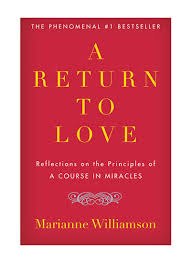
Back by popular demand -- and newly updated by the author -- the mega-bestselling spiritual guide in which Marianne Williamson shares her reflections on A Course in Miracles and her insights on the application of love in the search for inner peace.
July 2018
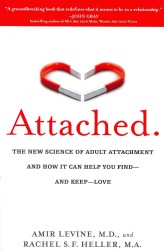
An insightful look at the science behind love, Attached offers readers a road map for building stronger, more fulfilling connections.
June 2018
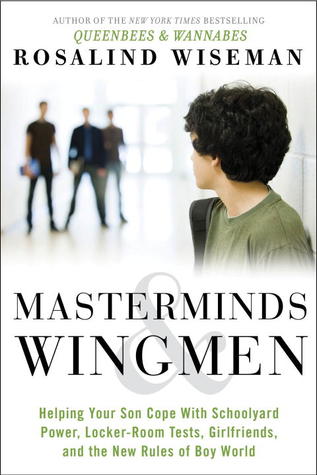
A landmark book that reveals the way boys think and that shows parents, educators and coaches how to reach out and help boys overcome their most common and difficult challenges -- by the bestselling author who changed our conception of adolescent girls.
May 2018
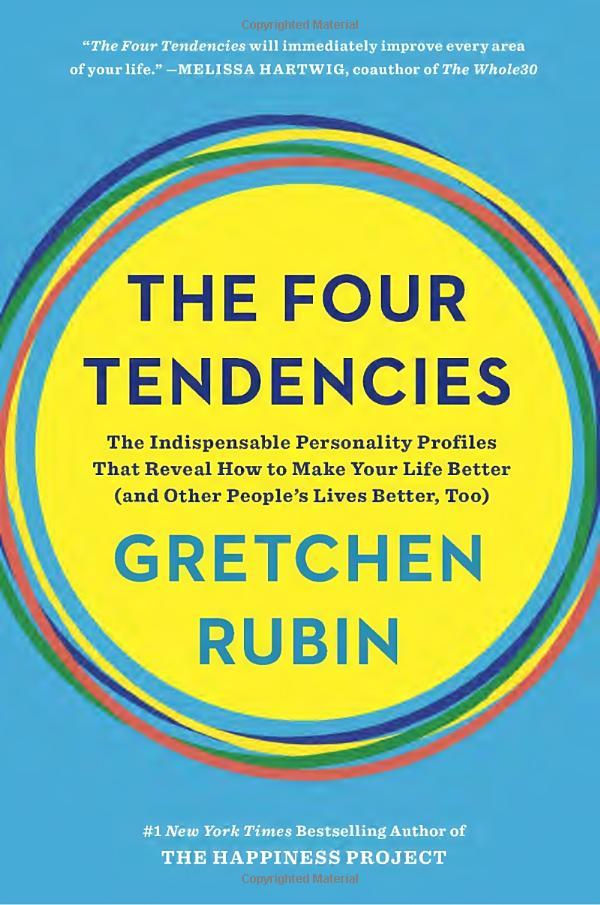
With sharp insight, compelling research, and hilarious examples, The Four Tendencies will help you get happier, healthier, more productive, and more creative. It's far easier to succeed when you know what works for you.
April 2018
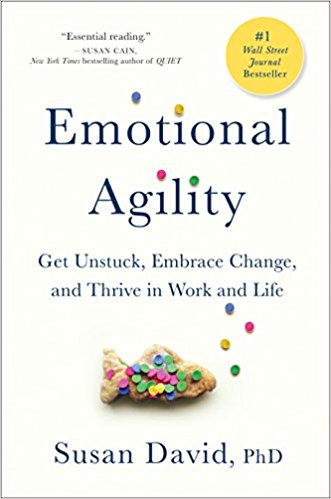
Written with authority, wit, and empathy, Emotional Agility serves as a road map for real behavioral change—a new way of acting that will help you reach your full potential, whoever you are and whatever you face.
March 2018
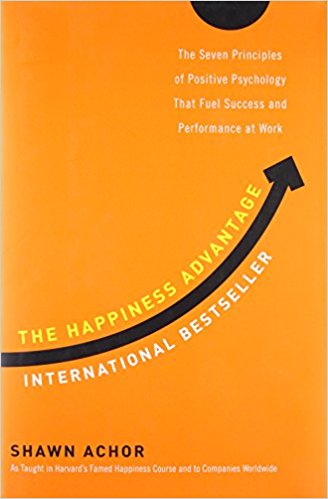
Using stories and case studies from his work with thousands of Fortune 500 executives in 42 countries, Achor explains how we can reprogram our brains to become more positive in order to gain a competitive edge at work.
